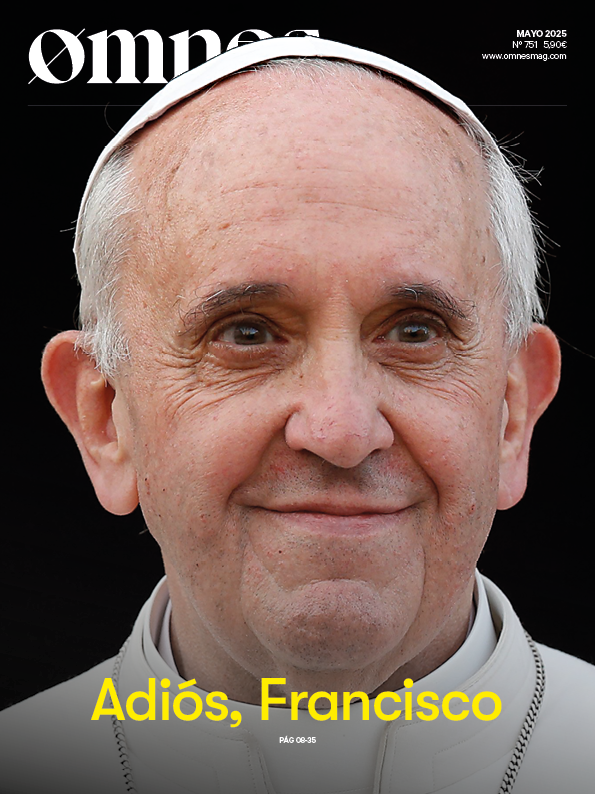We all thought it was a tall tale, or at best, a plague that would self-confine within the borders of the country of the Great Wall, terracotta warriors and Kung Fu. But this was not the case. Gifted with a clear imperialistic vocation (he had to be Chinese!), the little coronavirus dragon conquered the world in a few months. After some strong skirmishes provoked -almost as a rehearsal- in Iran, Korea and Singapore, it advanced with a firm step on the NATO member countries (and adjacent ones), and occupied them almost without encountering any resistance. It could not have been otherwise, the Westerners, blinded by our "delirium of omnipotence." (Raniero Cantalamessa dixit), we underestimated the microscopic oriental to the point of nausea, and such arrogance took its toll on us. The virus arrived suddenly, revealing our vulnerability and, isolating us in our homes (yes, just as viruses are isolated in laboratories), sent us to the thinking corner.
He sent us to the thinking corner and snatched away the futurebecause it threw overboard all our projects, plans, agendas, and calculations of self-sufficient, hyperactivity-disordered Westerners. The future, in effect, is a forward tension, a movement from what is to what will be. The future is expressed in phrases such as "next Sunday I will go to the demonstration" or "I will never circumvent the confinement", and has to do with what is foreseeable, with what is programmed, with the orientation of our actions. The future has to do, in short, with what we can control. Western civilization, in its efforts to control reality, thought only in terms of the future. Anti-natalist and gender policies, as well as euthanasia, are examples of this obsession with control. An obsession that reaches extreme levels with the transhumanist project that aspires to turn us into posthumans (beings more similar to a divinity than to man).
Western civilization enclosed reality in its own mental schemes, starting from the dogma that everything is a human construction, a cultural product... and got drunk on the future. It invented utopias/ideologies such as scientism, liberalism, communism, nationalism, the idea of "progress", etc., all of them substitutes for religion, and aimed at building a kind of paradise on Earth. It killed God, denied nature, and insisted on saving itself by and from itself. In other words, it clung to the future without further ado.
And in the midst of this infernal hustle and bustle of agendas and programs that came and went - at times allying, at others confronting - the little coronaviral dragon suddenly burst in to snatch the future from us and leave us naked before the future. Naked and dumbfounded like Adam after eating his apple pie. And why did it leave us with that feeling of nakedness? Because in the desperate attempt to control our destiny we had condemned the future to ostracism. We had rejected that which puts us before the horizon of the unforeseen and the uncontrolled. For that is the to-be, that which comes to us, that which meets us. The future is what bursts into our lives. "...like lightning in any storm, fracturing the night."according to philosopher Fabrice Hadjadj.
This is how the pandemic met us. It abruptly entered this temple of adoration of humanity that the West has become (as the police do in European Catholic temples to suspend masses), and reminded us, in a very painful way, that the future also exists. That our history is the result of a sophisticated dialectical game between the future and the future. Between our calculations and forecasts, and what happens to us from a surplus of reality that we do not control. Precisely for this reason, people of faith are urged to say "tomorrow I will go to such and such a place" or "next semester I will do such and such a thing", but with the addition of "God willing" or "God willing" or "God willing". For it is certainly not a matter of choosing between the future or the future, but of understanding that they imply each other, although with a caveat, as Hadjadj observes: it is the future that is subordinate to the future, and not the other way around. Perhaps this time in the thinking corner will help us to understand that a civilization clinging to the future, a civilization that denies what comes from beyond its own estimations, like that person who covers his ears and sings loudly so as not to hear what may upset his schemes; he said, perhaps we can understand that such a civilization is doomed to failure. And in the best of cases, perhaps we can overcome the bitter secularism that corrodes us inside by opening a window to God, who is not in the future, but is the absolute future.







